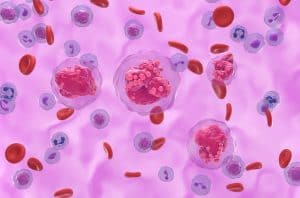Urgent action needed on antimicrobial resistance, says government report
pharmafile | May 19, 2016 | News story | Manufacturing and Production, Medical Communications, Research and Development | ABPI, Lord Jim O'Neill, NICE, antimicrobial resistance
A new UK governmental report has warned that the global rise of antimicrobial resistance is set to worsen, with the potential to kill 10 million people a year by 2050.
Lord Jim O’Neill was given the task by David Cameron to investigate antimicrobial resistance and its potential impact in 2014. Although the potential scenarios O’Neill identifies make for grim reading, he follows them with a set of recommendations that have the potential to make a real difference in arresting the problem.
His report recommends an urgent global awareness campaign by summer 2016, financial incentives for the pharmaceutical industry to produce new drugs and the roll out of rapid tests to allow doctors to identify infection in real time.
As part of that financial stimulus for pharma, it recommends that over £10 billion be made available over the next ten years to “support a pipeline of around 15 new antibiotics [they] think are necessary.”
Although, O’Neill also indicates that the pharma industry must “play ball” on the issue and invest heavily in the research of new antibiotics, themselves. He says: “We think there is a credible case for the pharmaceutical industry itself to pay, given how important antibiotics are for 7 billion people around the world.”
The Association of the British Pharmaceutical Industry welcomed the report, but did not concur that the pharma industry should solely foot the bill. Director research, medical and innovation at the ABPI, Dr Virginia Acha, comments: “The AMR review is a timely intervention to highlight to the world that resistance to antibiotics is one of the greatest global health threats of our time. Resistance affects almost every are of modern healthcare, whether the ability to fight infectious diseases or to carry out the most routine surgical procedures.
“Our industry supports the broader messages in this report, but the suggestion that pharmaceutical companies should consider the financial burden for global AMR fails to recognise the need for a collaborative approach which this long-term review has consistently identified… Putting the onus on any one group will not solve the problem and is not a sustainable solution.”
Professor Mark Baker, director of the centre for clinical practice at NICE, comments: “We need to encourage an open and transparent culture that allows health professionals to question antimicrobial prescribing practices of colleagues when these are not in line with local and national guidelines and no reason is documented.”
Sean Murray
Related Content

NICE recommends migraine treatment for NHS use
The National Institute for Health and Care Excellence (NICE) has shared draft guidance recommending AbbVie’s …

GSK’s Jemperli recommended by NICE for endometrial cancer treatment
GSK has announced that the National Institute for Health and Care Excellence (NICE) has recommended …

NICE recommends SC treatment of AbbVie’s Tepkinly for patients with DLBCL
AbbVie has announced that the National Institute for Health and Care Excellence (NICE) has recommended …







